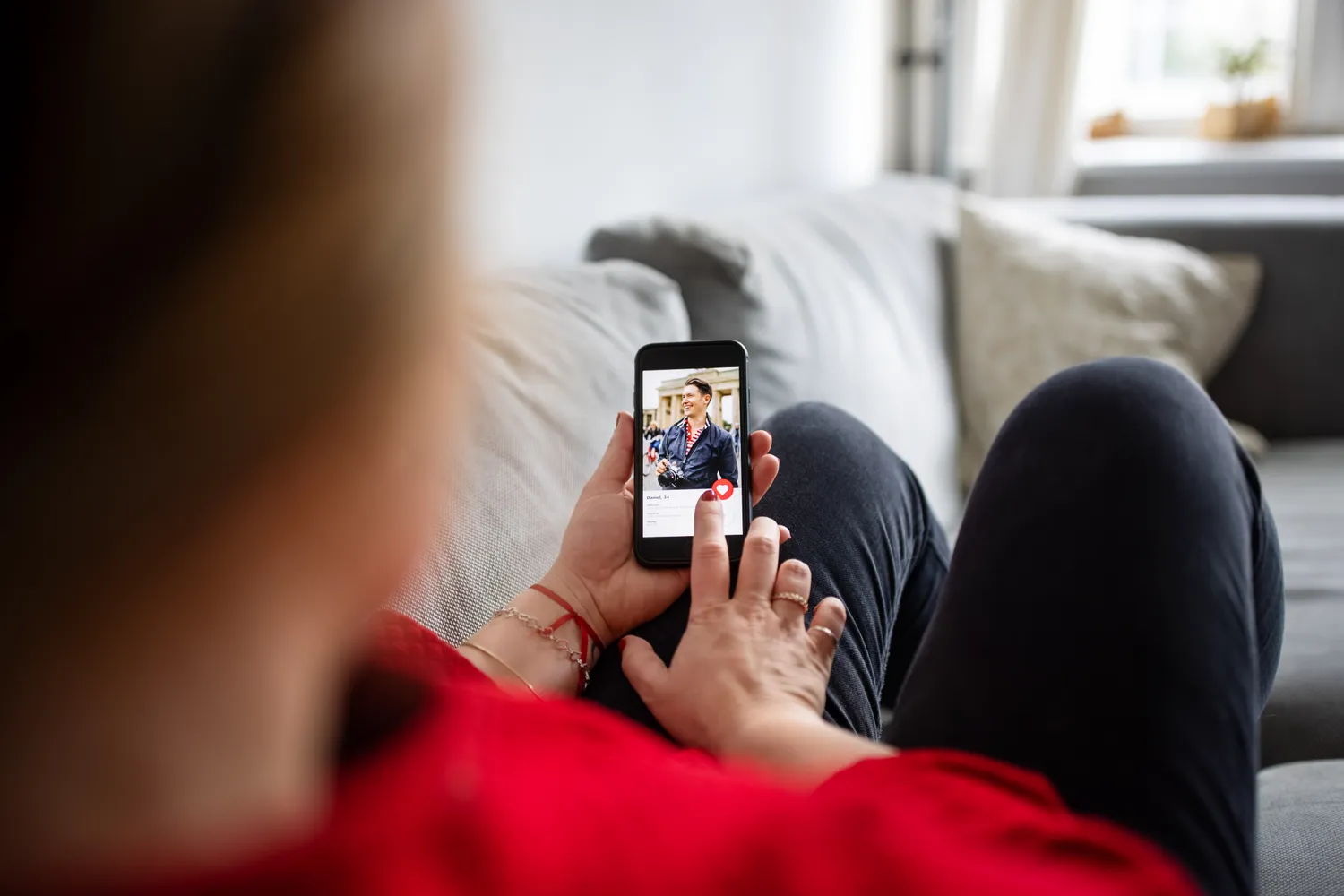The Complete Guide to Dating a Friend’s Ex (Therapists Weigh In)
Is it ever OK to date a friend's ex? Therapists say: yes, sometimes—but only under very specific conditions. The answer depends on context, consent, emotional safety, and your willingness to prioritize integrity over impulse.
This research-based guide breaks down what modern relationship science and therapists suggest so you can navigate this taboo territory without wrecking your friendships (or your own mental health).
Research Hook: Why This Question Matters in 2025
In 2025, our social worlds are smaller and more interconnected than ever. Group chats, shared friend circles, co-working spaces, and digital communities often blur boundaries. So when chemistry sparks with a friend’s ex, it’s no longer a rare scenario—it’s a predictable modern dilemma.
Recent surveys of young and midlife adults show that many have either:
- considered dating a friend’s ex,
- felt betrayed when someone did,
- or avoided potential partners to protect a friendship.
Therapists and researchers agree on one thing:
The ethical question is not just “Is this allowed?” but “Can this be done with honesty, consent, and emotional care for everyone involved?”
Quick Answer (Featured Snippet)
Dating a friend’s ex can be OK if four conditions are met:
- your friend is emotionally healed,
- there was no abuse or major betrayal in the past relationship,
- you are fully transparent (not secretive), and
- you’re prepared to accept the risk that the friendship may change—or end.
The Science of Dating a Friend’s Ex
The “friend’s ex” dilemma isn’t just drama; it taps into attachment, loyalty, and trust.
Key psychological themes:
- Attachment and security: Friends often view dating an ex as a test of loyalty.
- Narratives and meaning: How people make sense of a breakup shapes whether they feel threatened by your new relationship.
- Social belonging: One choice can destabilize an entire friend group ecosystem.
Therapists emphasize that the real variable isn’t “friend’s ex=off-limits.”
It’s whether you handle the situation with clarity, consent, empathy, and boundaries.
Latest Research You Should Know (2020–2024)
While most studies don’t focus solely on “friend’s ex” scenarios, related research offers concrete guidance:
Breakup meaning-making
- Research on emerging adults found that those who understand why a relationship ended show greater emotional closure and personal growth (Kansky & Allen, 2017).
- Translation: If your friend has made sense of the breakup, they’re more likely to handle you dating their ex without long-term fallout.
Perceived betrayal and trust
- Relationship science consistently shows that perceived betrayals between friends (even without cheating) predict reduced trust and lower relationship satisfaction.
- If you move in secrecy, you dramatically increase the odds of being coded as a betrayal, not a transition.
Emotional safety and trauma
- Clinical evidence indicates that contact with an abusive or highly distressing ex can trigger symptoms similar to trauma responses.
- Pursuing someone who seriously harmed your friend is not “messy”; it’s potentially retraumatizing.
Social network dynamics (Harvard, 2024)
- Harvard-affiliated researchers examining friend networks found that romantic choices within tight circles often reshape alliances, increase polarization, and push out those who feel blindsided.
- Meaning: this isn’t just about you and your friend; it’s about the entire ecosystem.
Digital-age boundaries (Stanford researchers)
- Stanford researchers studying post-breakup online behavior highlight how constant social media visibility makes moving on slower and more emotionally loaded.
- When you date a friend’s ex, public posts, tags, and stories can amplify hurt or healing depending on how mindfully you navigate them.
Evidence-Based Mechanisms: What Actually Makes This OK—or Not
Therapists point to several mechanisms that determine whether dating a friend’s ex is ethical and sustainable.
Emotional resolution
- If your friend still feels heartbreak, resentment, or unresolved grief, your relationship with their ex is more likely to feel like a wound.
Nature of the past relationship
- A brief, casual fling is not the same as a multi-year, cohabiting partnership.
- The deeper the past bond, the higher the ethical bar.
Past harm or abuse (non-negotiable)
- If the ex was abusive, manipulative, or chronically unfaithful to your friend, pursuing them is considered off-limits by most therapists.
If your friend’s ex was abusive, choosing that person signals a rupture in empathy and safety. No potential romance is worth re-opening someone else’s trauma.
Intent and honesty
- Secret texting, hiding dates, or asking for “permission” when you’ve already decided are all associated with greater damage.
Capacity for boundaries
- Your ability to set and maintain clear boundaries is crucial: emotional, physical, digital, and social.
People Also Ask: Is It Always Wrong to Date a Friend’s Ex?
Short answer: No, it’s not always wrong.
It may be reasonable to consider if:
- The relationship was short, mutual, and respectfully ended.
- Significant time has passed and your friend is genuinely over it.
- You’re willing to talk openly before anything romantic happens.
- You accept that they may say no—and you’re prepared to honor that.
If any of these are missing, pause.
People Also Ask: When Is Dating a Friend’s Ex Absolutely Off-Limits?
Therapists widely agree it’s effectively a no-go when:
- There was physical, emotional, or sexual abuse.
- There was chronic manipulation, gaslighting, or severe betrayal.
- Your friend still has strong feelings or is actively healing.
- You plan to hide it or “wait until they find out.”
A clear rule of thumb: If moving forward requires secrecy or distortion, it is not being handled ethically.
People Also Ask: How Do I Know If This Connection Is Worth the Risk?
Use a quick evidence-informed gut check.
Ask yourself:
- Is this a deep, values-aligned connection—or just novelty and chemistry?
- Would I still want this if it meant losing or changing the friendship?
- Do I admire how this person treated my friend, or am I ignoring red flags I already know about?
- Am I confusing emotional intensity (forbidden, secret, dramatic) with compatibility?
If your reasons are:
- Mostly physical,
- Based on curiosity,
- Or fueled by drama or comparison,
then it’s usually not worth destabilizing a meaningful friendship.
People Also Ask: What If I’m Ready to Pursue It?
If after honest reflection it still feels real, move slowly and deliberately.
Step 1: Map the impact
Before talking to anyone:
- Consider how this affects your friend,
- Your shared social circle,
- Any co-parenting or community overlaps,
- And your own sense of integrity if things end badly.
Step 2: Talk to your friend before it turns romantic
This is non-negotiable.
A research-backed, therapist-approved script framework:
- Choose a calm, private setting.
- Lead with care: acknowledge their past relationship as real and significant.
-
Be direct but gentle:
- “I’ve started developing feelings for X and wanted to talk to you before anything happens.”
- Validate their feelings—whatever they are.
-
Ask, don’t corner:
- “How would this feel for you?”
- Be prepared: they may need time, space, or may say they’re not OK with it.
The goal is not to secure a yes at all costs. The goal is to align your actions with your values around friendship, respect, and honesty.
Step 3: Mean it when you say their response matters
- If you would proceed no matter what, don’t frame the talk as asking permission.
-
Instead, own your stance honestly:
- “I care about you and also feel strongly about this connection. I know this might change our friendship, and I want to acknowledge that openly.”
Lying or disguising a foregone decision is what turns a complicated situation into a betrayal.
People Also Ask: How Do I Tell My Friend I’m Already Dating Their Ex?
If things started before the conversation (or in secret), repair is still possible—but it requires full accountability.
Keep it clear and concise (40–50 word style guidance):
- Admit you handled the timing poorly.
- Take responsibility without blaming feelings or circumstances.
- Offer space for their reaction.
- Accept consequences without pressure for immediate forgiveness.
People Also Ask: What If I Like My Friend’s Ex but Decide Not to Act On It?
Sometimes the healthiest, most self-respecting choice is to step back.
If there’s mutual interest but you choose your friendship, you can say:
- “I care about you, but pursuing this would damage someone I deeply value. I’m choosing not to move forward.”
Then:
- Define what contact feels appropriate.
- Avoid emotional affairs or flirty “almost” zones that confuse everyone.
If staying close to the ex keeps the attraction alive, it’s OK—and often wise—to set firmer distance.
Research-Backed Strategies for Navigating This Situation
Use these evidence-informed strategies to move with clarity instead of chaos.
Run a values check
- Write down your top 3 values (e.g., loyalty, honesty, growth).
- Ask: “Is how I’m handling this aligned with these values?”
Timeline reality check
- How long since the breakup?
- Has your friend had time and space to heal?
- Has there been a clean emotional end—or on-and-off contact?
Emotional literacy
- Name your motives: loneliness, attraction, admiration, desire for stability.
- People who can label their emotions accurately make more ethical, stable decisions.
Third-party consult
- Consider a neutral therapist or mature friend (not in the same circle) to reality-test your perspective.
Boundaries in action
- No secret DMs.
- No sleepovers “as friends” while you’re uncertain.
- No venting about your friend to their ex.
Meta-Analysis Insights (What Patterns Actually Work)
Across clinical experience and relationship research, a few consistent patterns emerge.
Healthy outcomes are more likely when:
- The original relationship ended respectfully and clearly.
- Everyone involved feels informed rather than blindsided.
- The new couple takes responsibility for awkwardness instead of demanding instant comfort.
- Social media and group events are handled thoughtfully, not performatively.
Unhealthy outcomes are more likely when:
- There’s overlap (emotional or physical) between the two relationships.
- Someone minimizes the friend’s feelings or history: “It wasn’t serious anyway.”
- The new couple frames all objections as jealousy or immaturity.
Long-term, people rarely regret moving with integrity. They often regret rushing, hiding, or rewriting history to justify what they wanted in the moment.
Practical Implementation: A Clear Framework to Follow
If you’re in this situation right now, here’s a concise, step-by-step guide.
Check for red flags (stop if):
- There was abuse or severe betrayal.
- Your friend is visibly still in pain.
- You feel the need to hide messages or meet in secret.
Clarify your why:
- List 3 reasons you’re drawn to this person.
- If they’re mostly “forbidden,” “exciting,” or “they understand our drama,” reconsider.
Talk to your friend first (if it’s still ethical to proceed):
- Be transparent.
- Validate their past.
- Don’t pressure them to be “cool” about it.
Talk to the ex with equal honesty:
- Align expectations.
- Discuss how you’ll handle your friend and social circles.
Co-create boundaries:
- Around group events, holidays, online posts, and private information.
Keep checking in:
- With yourself,
- With your partner,
- And when appropriate, with your friend about comfort levels.
New, Real-World Style Scenarios (to Pressure-Test Your Decision)
Consider how each scenario would feel on all sides.
Scenario 1: The three-month situationship
- Your friend casually dated someone for a summer, ended mutually, moved on.
- A year later, you and this person connect deeply through shared interests.
- With an open conversation and genuine closure, therapists say this can be navigated ethically.
Scenario 2: The long-term ex with shared community
- Your friend lived with this person for four years; the breakup is recent and raw.
- You feel a connection but also see their grief up close.
- Most experts would advise waiting—often many months or more—if at all.
Scenario 3: The ex who treated your friend poorly
- You know they lied repeatedly or dismissed your friend’s feelings.
- If you move forward anyway, you’re signaling what behavior you’re willing to align with.
- This often harms both your friendship and your self-respect.
Expert Recommendations (Summarized)
Therapists and relationship researchers generally recommend:
- Lead with honesty, not secrecy.
- Treat your friend’s past relationship as real and valid, even if it looked imperfect from the outside.
- Avoid pursuing anyone who seriously hurt your friend.
- Don’t use “But we’re in love” to erase responsibility.
- Accept that even if you do everything right, your friend has a right to their feelings—and possibly to distance.
Key Takeaways (Featured Snippet Style)
- Dating a friend’s ex is not automatically forbidden, but it is never casual.
- Context, communication, consent, and emotional safety must guide every step.
- Abuse, betrayal, or active heartbreak make pursuing the ex ethically off-limits.
- Honesty—before anything happens—is your best chance to protect trust.
- If you can’t do this with integrity, you’re not ready to do it at all.









